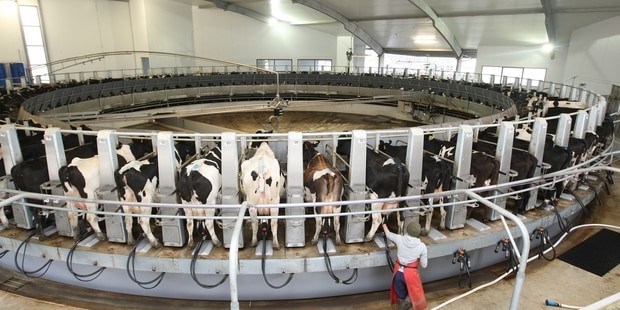
Source: Rotorua Daily Post
A Reporoa dairy farmer has cautioned colleagues to be familiar with proposed new milk cooling regulations.
Dairy farmers are being urged to plan ahead in order to meet the new proposed milk cooling requirements as part of the anticipated regulatory review being championed by the Ministry for Primary Industries (MPI).
MPI animal products director Matthew Stone said there had been more focus internationally on milk cooling with a move towards more stringent requirements.
“MPI believes that tightening the milk standard, even though a relatively minor change, will ensure we maintain our position as a producer of premium quality milk.”
Reporoa dairy farmer Colin Guyton said many farmers might not be aware of the new rules.
” It will be best for farmers to get on top of this as there is quite a bit to get organised – despite some long lead times being discussed.
“The beauty of the new milk cooling systems is that they make life a lot less stressful.
“Milk quality is better as the chilling is more immediate and the chiller cools water over the day to maximise cost effectiveness.”
The proposed new requirements would introduce strict cooling timeframes of 10C within four hours of the commencement of milking, and cooling to 6C within two hours of the completion of milking, and within six hours of commencement of milking.
Farmers may need to log their milk profile cooling data within a minimum of 30 days storage.
Taupo Refrigeration and Air Conditioning director Lawry Bidgood said farmers shouldn’t think of leaving any upgrade of existing equipment or new installation until the last minute.
“Each farmer will face a different scenario, however, the sooner they make contact the easier it is to schedule the upgrade or installation/commissioning work and to make certain the appropriate unit is ordered.”
There are only a handful of manufacturers of cooling units in New Zealand. There was a shortage of experienced, qualified refrigeration and service engineers here, he said.



